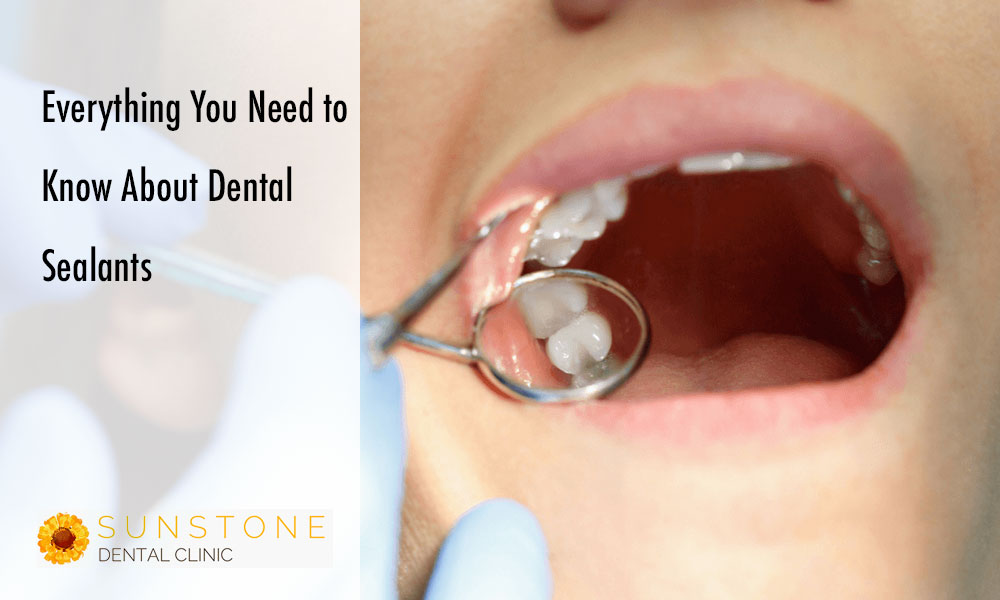Benefits of dental sealants
Dental sealants have many benefits for both kids and grown-ups. Here’s why they’re great:
- Stops cavities: Sealants keep teeth safe from cavities by covering up the weak spots. This helps a lot if you tend to get cavities or have deep grooves in your back teeth.
- Saves money: Getting sealants can save you cash over time. By avoiding cavities and big dental work, you won’t have to spend as much on dental care.
- No pain, no fuss: Getting sealants doesn’t hurt at all. There’s no drilling or numbing needed. It’s a quick and simple process done in just one trip to the dentist.
- Keeps your mouth clean: Sealants make your teeth smooth and easy to clean. This means less plaque and food stuck on your teeth, reducing your chances of gum problems.
- Lasts a long time: With proper care, sealants can protect your teeth for years and years, keeping cavities away.
- Good for everyone: Sealants aren’t just for kids. Adults can benefit too. Whether it’s protecting your child’s new permanent teeth or your own, sealants are a smart choice for preventing dental issues.
Who can benefit from dental sealants?
Dental sealants are great for everyone, but they’re especially helpful for certain groups:
- Kids and teens: Their developing habits and deep molars make them prone to cavities. Sealants offer crucial protection during this time.
- Adults with deep grooves: Some adults naturally have deep grooves on their back teeth, making them prone to cavities. Sealants can prevent decay and lessen the need for fillings.
- Those with a history of cavities: If you’ve had cavities before or are at risk for them, sealants add an extra shield against future decay.
- Orthodontic patients: Cleaning teeth with braces is tricky. Sealants make it easier, reducing the risk of cavities and gum issues during treatment.
- Seniors: Aging can affect oral health, but sealants help protect older teeth, especially with decreased saliva and fragile enamel.
The process of getting dental sealants
Getting dental sealants is simple and painless. Here’s what happens during your appointment:
- Preparation: Your dentist checks your teeth to see if sealants are right for you. If they are, they clean your teeth well to remove any dirt or plaque.
- Tooth prep: They keep the tooth dry and separate it from other teeth. They might use cotton rolls or a rubber dam for this.
- Etching: A special gel is applied to roughen the tooth surface, helping the sealant stick better. Then, it’s rinsed off, and the tooth dries again.
- Sealant application: The dentist puts the sealant material on the tooth, making sure it fills the grooves and pits. It’s a liquid that hardens quickly under a special light.
- Curing: The dentist uses the light to harden the sealant. This only takes a few seconds per tooth.
- Evaluation: They check to make sure the sealants fit well and work properly. Any extra material is removed, and they check your bite too.
- Aftercare: Your dentist gives you instructions on how to take care of your new sealants. Following these instructions helps them last longer and work better.
Proper care and maintenance of dental sealants
Keeping your dental sealants in good shape is important to make sure they work well for a long time. Here’s how you can take care of them:
- Keep up with oral hygiene: Brush your teeth twice a day with fluoride toothpaste and floss every day. Even though you have sealants, it’s still important to keep your mouth clean.
- Avoid hard objects: Don’t chew on hard things like ice or pens, as this can chip or wear down your sealants.
- Visit your dentist: Regular check-ups help your dentist see if your sealants are still doing their job. They’ll also clean your teeth to keep them healthy.
- Look out for wear and tear: Keep an eye on your sealants for any damage. If you see any chips or cracks, tell your dentist right away.
- Think about touch-ups: Over time, your sealants might need a bit of fixing up. Your dentist can check them during your check-ups and see if they need any extra care.
Conclusion
Dental sealants keep your teeth safe from cavities by adding an extra layer that blocks out bad bacteria and acids, especially in hard-to-reach places. If you want to keep your teeth healthy, ask your dentist about sealants today! To make an appointment at Sunstone Dental Clinic, call (604) 428-8722.

